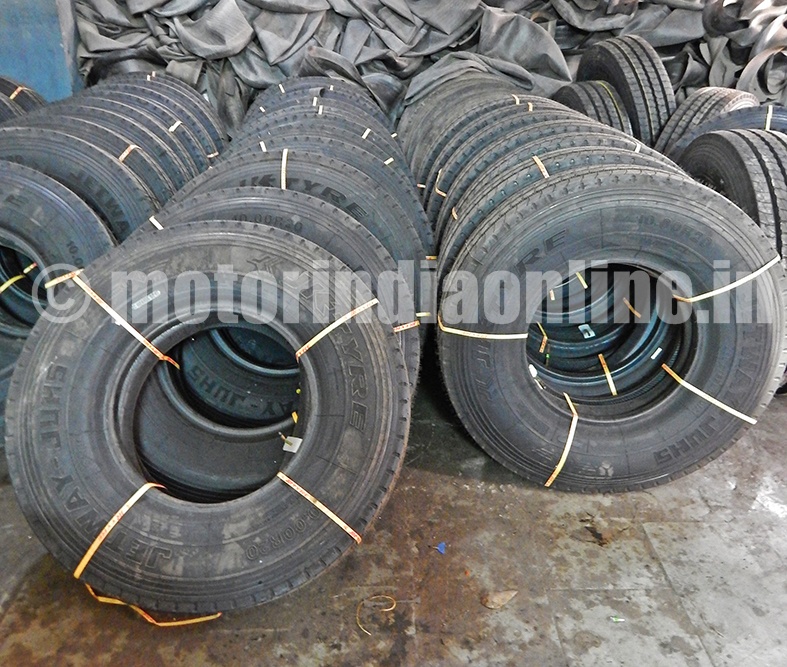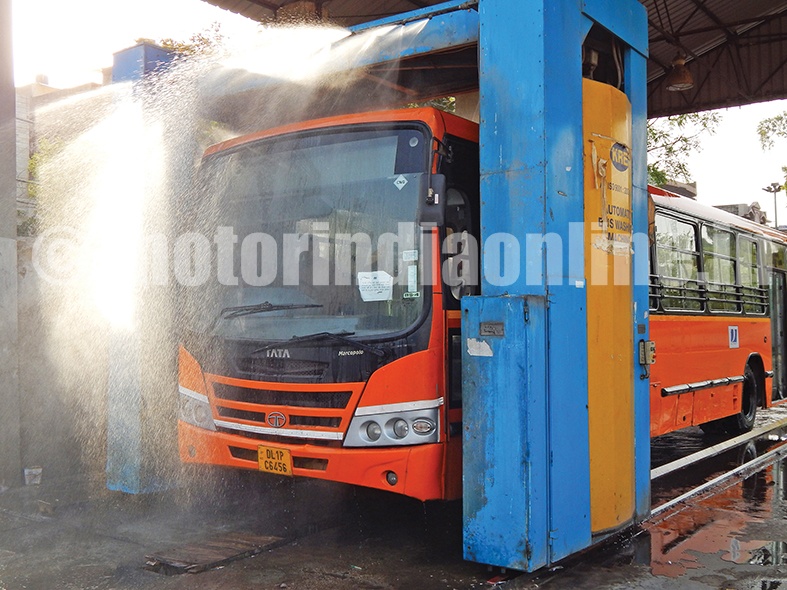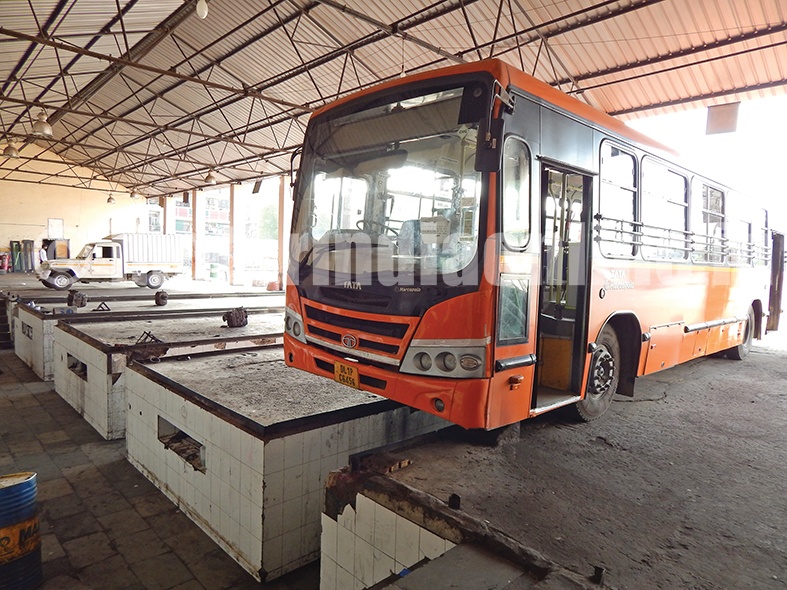 Running cluster buses in Delhi by private operators is no mean feat. Not only these operators don’t get the privileges of Government-run DTC, but are also plagued by multiple issues. However, Goverdhan Transport Company (GTC) is one such operator which is soldiering on despite regular hurdles and obstacles. Within two years of commencement of operations, it has come out with flying colours. It success story is also underpinned by JK Tyre and Company, which not only provided the right kind of products and services but also a complete peace of mind.
Running cluster buses in Delhi by private operators is no mean feat. Not only these operators don’t get the privileges of Government-run DTC, but are also plagued by multiple issues. However, Goverdhan Transport Company (GTC) is one such operator which is soldiering on despite regular hurdles and obstacles. Within two years of commencement of operations, it has come out with flying colours. It success story is also underpinned by JK Tyre and Company, which not only provided the right kind of products and services but also a complete peace of mind.
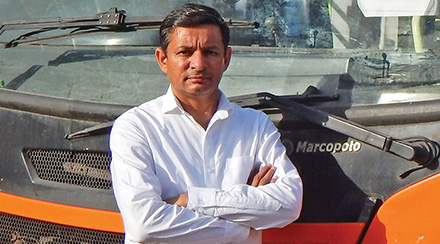
Mr. Sunil Kumar, Director, Goverdhan Transport Company, told MOTORINDIA: “We were earlier a private bus operator and owned 70-odd buses. Just when the Blue Lines were getting phased out, we floated a Special Purpose Company (SPC) for the cluster buses in the city. We finally won the bids during the third round announced by the State Government. We bought 111 BS-IV buses from Tata Motors and are now one of the leading service providers of passenger transportation service in the city.”
Talking about its current fleet, Mr. Kumar said: “The capacity of the buses, which are GPS enabled, are 62 (42 sitting & 20 standing). Once the new buses come in, our total fleet will go up to 244 buses. Our overheads comprise gas filling, maintenance, operational costs, etc. Even though the drivers are on our rolls, the conductor is deputed from the Government side.”
It is to be mentioned here that Goverdhan Transport Company was by formed by a group of five, who had a passenger transportation background, in 2007. Prior to that, Mr. Sunil Kumar and his fellow directors were working as a Blue Line (private bus operator) in Delhi. Operating from a depot provided by DTC on a 10-year lease in 2013, it works in close co-ordination with DIMTS and SIS. The depot, located at Dilshad Garden, is a 4-acre facility which has the capacity to park 111 buses.
“Around nine buses come over to the workshop for maintenance and repairing everyday. We will be parking our next fleet of 127 buses at Millennium Depot. Earmarked as our sub deport, it will be operational this year,” he added.
It may be recalled that the Delhi Government has divided the city into 60 routes and 17 clusters in various regions with Goverdhan Transport being entitled to run City Bus Services in North East Delhi. The routes on which its buses ply on for both two and fro journey include Kashmere Gate to Anand Vihar, Mayur Vihar to Dhaula Kuan, Mayur Vihar to Mori Gate, Anand Vihar to Kapashera, Anand Vihar to Mehrauli, Shahadara to Vasant Vihar, and Yamuna Vihar to Mori Gate. On an average, the total distance covered by GTC is 26,600 km per day.
Talking about its association with JK Tyre, Mr. Kumar observed: “We were earlier sourcing tyres from another tyre maker and later switched our allegiance to JK Tyre. We are now keen to build a long-term relationship with them. Earlier we used to have nylon tyres which used to burst due to brakes being applied at irregular intervals. We then opted for JUC3 semi lug pattern from JK for all wheels in 2015 and are now using JUH5 which seems a perfect fit for our requirements. JUH5, which is a purely rib tyre suited for bus applications, is now fitted across both the ends of the vehicle. We have also recommended this tyre to Tata Motors when they supply their next batch of vehicles to us.”
Currently, tyres account for six per cent of the company’s overall overheads. There are 666 tyres used in its current fleet (6 tyres x 111 buses) which are used for 80,000 km or 10-12 months before being retreaded and further used for an additional 40,000 km. On an average, nearly 48 tyres are bought per month. Although wheel alignment is done manually at present, the company plans to install alignment machines in future. It also undertakes standard maintenance practices like tyre rotation, proper inflation, air pressure maintenance, etc.
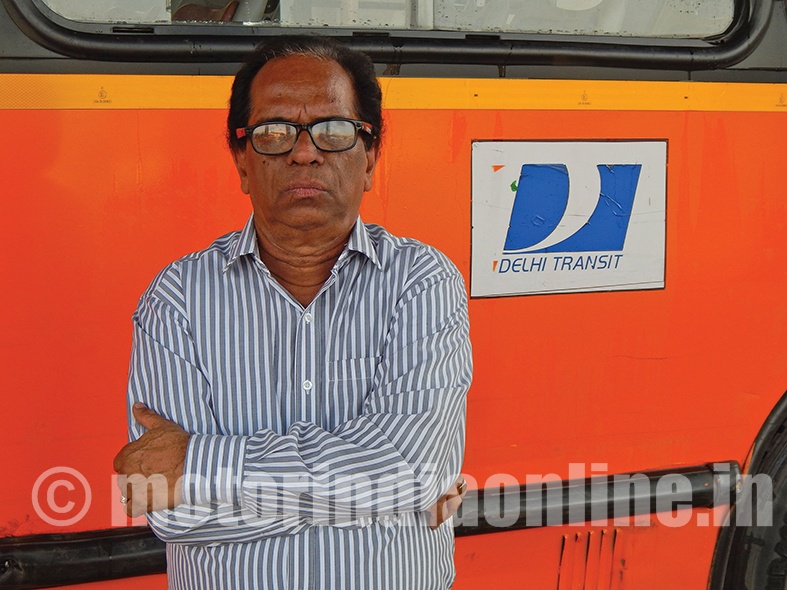
When queried about the benefits of being associated with JK Tyre, Mr. Kumar affirmed: “Apart from getting an excellent product, we are also getting other valued-added benefits such as accumulating points through CRM which can be redeemed by the end of the year. Moreover, there is a direct contact between us and the JK Fleet Management Team. As a result, there is neither any bargaining nor involvement of any third party such as dealers. We are happy with the benefits and schemes offered to us by the company. Genuine products are assured from JK and there is total transparency in the transactions. We also get quick delivery of tyres, coupled with the fact that the technical service support is very good. All these factors ensure a complete peace of mind. We are also happy that our workshop workers are trained by JK.”
Apart from showering praises on JK Tyre, Mr. Kumar offered some suggestions to the company. “Regular plant visits by tyre men is something we are looking forward to. It will help these workers to understand how the tyre is made. Apart from providing a regular training to our workers, we would appreciate if the company trains owners like us. This is because as the vehicle cost has gone up and so has the operators’ return on investment for the product. The holding period of buses (by operators) has gone up from 5 years to a decade now.”
Asked about the current challenges and concerns, he maintained: “Doing away with VAT imposed on tyres can drastically reduce the operational expenses. It will also result in reduction in the bidding amount that the (State) Government pays us. We are also hoping for the return of the odd-even car rule that will enable a smooth passage for our vehicles. The reintroduction of BRT is also very much welcome.”
When asked to shed some light on its future course of action, Mr. Kumar said: “We are open to plying on long routes and would also explore the scope for buying buses from other OEMs if the cost equation works out. However, sourcing environment-friendly vehicles such as hybrid or electric ones does not look feasible at this juncture. If the Government policies are favorable and if it is commercially viable as in the case of CNG, then we may consider it.”
